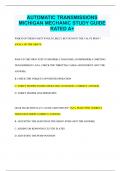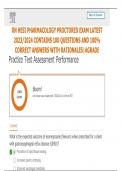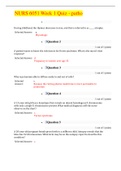Essay
Unit 4: Programming - Assignment 1 (Learning Aim A) (All Criterias Met)
- Module
- Unit 4 - Programming
- Institution
- PEARSON (PEARSON)
This essay/assignment covers Unit 4 - Programming Assignment 1 only and all criterias have been met to achieve the highest grade (Distinction) along with correct structure. Just follow the content step by step to save time. Note: This would support those in achieving distinction in an effortless w...
[Show more]







